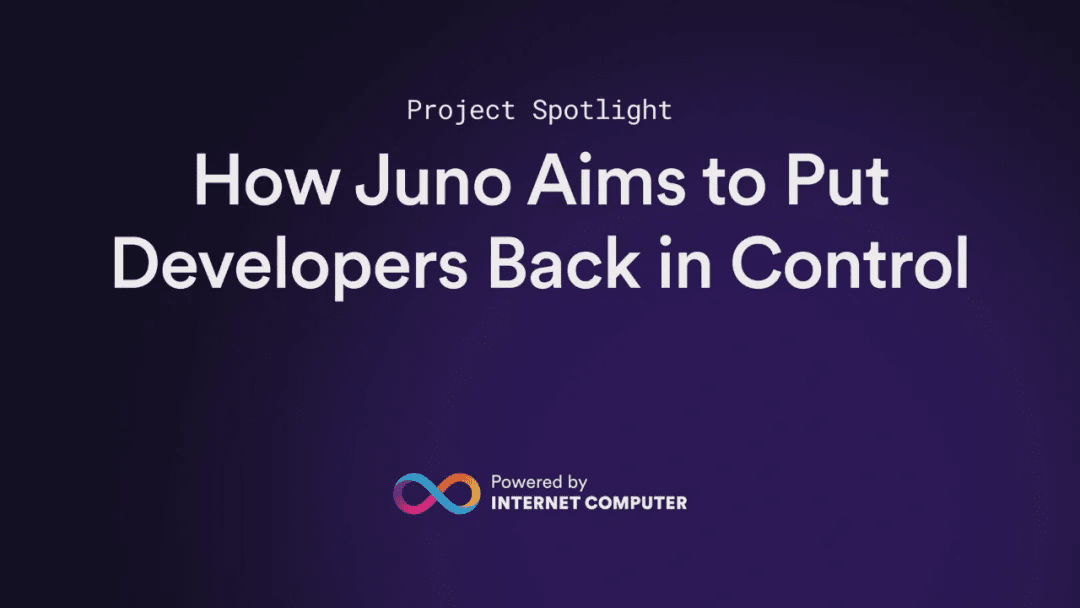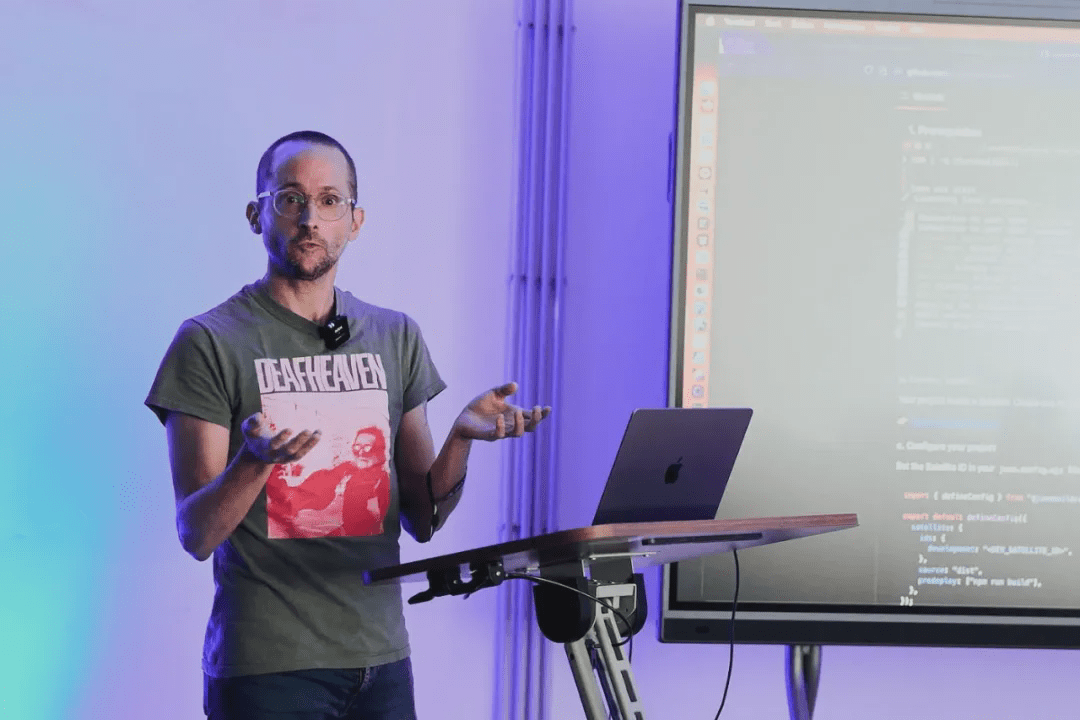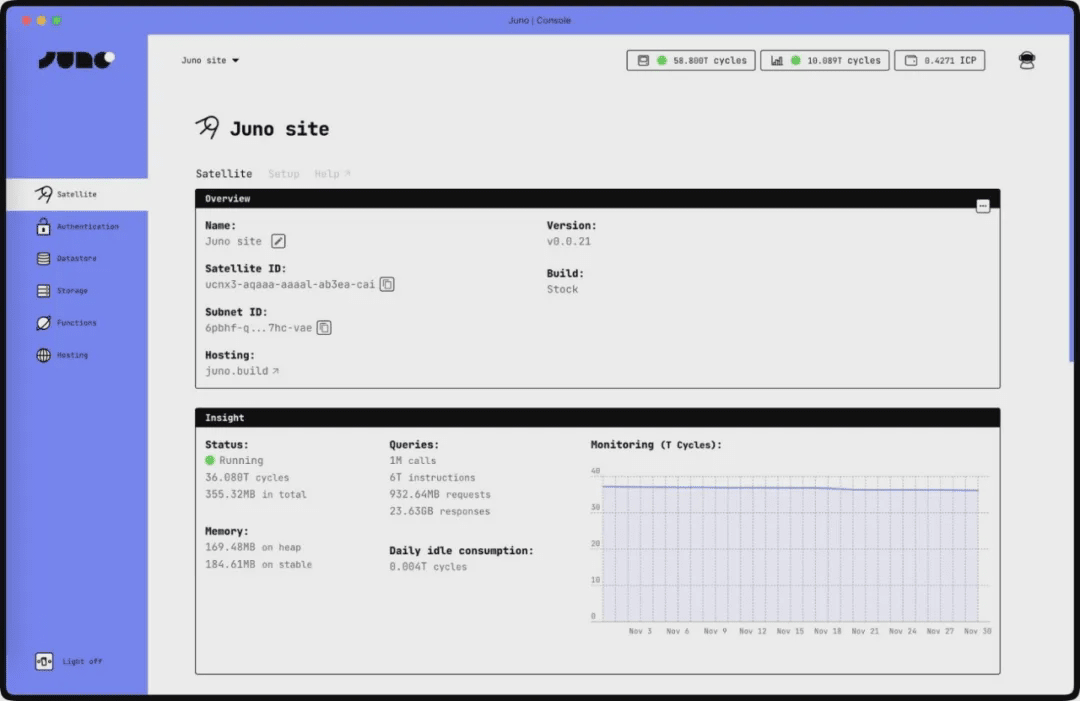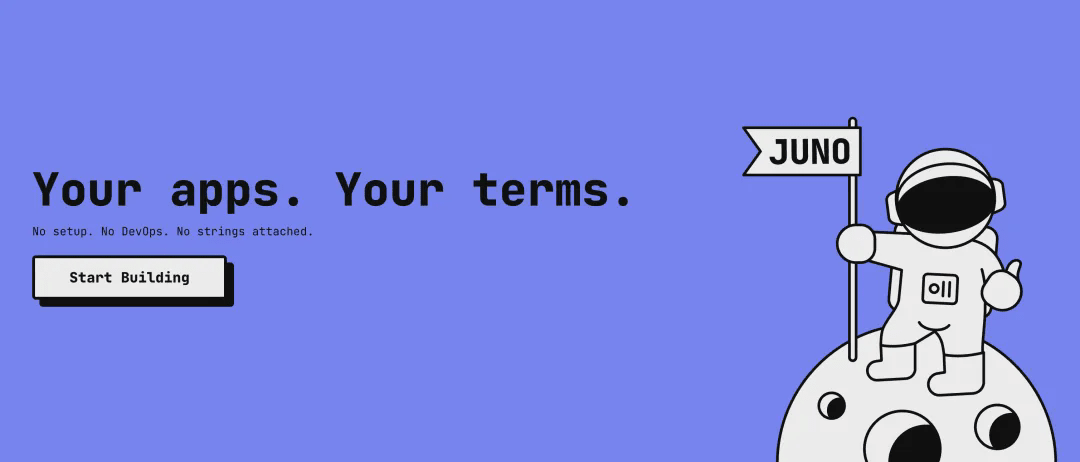
For many developers, modern cloud services are a double-edged sword. They offer unprecedented power and scale, but often at the cost of control, with data being opaque, policies complex, and platforms able to change rules at any time. Experienced developer David Dal Busco deeply understands this frustration; he did not accept the status quo but embraced a classic engineering mindset: "I want to build it myself."
The end result is Juno, a platform-as-a-service (PaaS) based on the Internet Computer, providing a powerful alternative to traditional cloud service providers. The project's original intention is to equip developers with the tools they need without requiring them to give up ownership.
We spoke with David to gain deeper insights into the origins of the project, the philosophy behind Juno, and how it empowers developers within the Internet Computer space.
The Birth of Juno
David is a freelance developer with nearly ten years of experience, spending most of his time developing mobile applications for clients. Over the years, he has not only worked for clients but also pursued his own projects in his spare time. His dual identity as a service provider and an independent creator gives him unique insights into the needs and pain points of modern developers.
"When I was building mobile applications, I used serverless providers, mainly Firebase," David explained. "At that time, there wasn’t that architecture on IC... If I wanted to develop an application over the weekend, I didn’t want to reinvent the wheel; I wanted to start with some tools first."
This demand for a streamlined, ready-to-use toolset, combined with growing dissatisfaction with the existing developer experience in Web3, sparked the birth of Juno. His motivation is not just to fill a market gap; he is building the solution he desires.
What is Juno?
At first glance, Juno may seem familiar to developers. David previously described it as a replacement for Google Firebase in Web3, and this analogy certainly holds true.
Like Firebase, Juno offers a comprehensive suite of out-of-the-box backend services, including authentication, data and file storage, hosting, and serverless functions, all designed to help developers build and deploy applications quickly.

But as David quickly points out, this comparison only goes so far.
"I want to say, as they know, this is a serverless cloud provider, but there’s a twist," he said. "The twist is that they are responsible."
The core idea of Juno is to empower developers. Juno requires no central intermediaries, allowing developers to have complete control over their applications, data, and funds. The architecture of the platform is entirely based on the Internet Computer, ensuring that Juno itself cannot access or control the developers' creations.
Why the Internet Computer?
Choosing to build on the Internet Computer is fundamental to realizing this vision. The Internet Computer provides the necessary decentralized infrastructure to fulfill Juno's promise of true ownership.
David points out, "When you use the Internet Computer (IC), you have security and control, and that's obvious." While people may trust the security of major cloud providers, the architecture of the Internet Computer inherently makes this security verifiable, transforming it from a policy commitment into a technical guarantee.
Juno leverages the unique capabilities of the Internet Computer, such as its smart contracts (referred to as 'containers'), as David described in his Juno white paper. This allows Juno to offer each developer a dedicated 'task control' smart contract that serves as the central hub for all projects and can even function as a wallet, ensuring developers retain control.
As David said, the Internet Computer can deliver web content directly from the blockchain at 'lightning speed,' enabling Juno to provide a seamless, 100% on-chain experience.
David's ultimate vision is to completely abstract away the complexity of blockchain. "My dream goal is to enable web developers using it to not even know there's a blockchain behind it."

From a Blank Page to a Complete Dapp
Juno aims to address the countless small yet time-consuming tasks that every developer faces.
"You don't have to start from scratch," David explained. "You or your AI programming assistant don't have to build authentication and think about permission systems. If you want users to upload files, you also don't have to build that part. With Juno, all the little tools you need to build are ready to go."
This allows developers to focus on what makes their applications unique rather than being constrained by boilerplate infrastructure. The community has already demonstrated the potential of the platform, showcasing the diverse applications that can be built on it.
Community Showcase: Building on Juno
The community has been building a variety of applications. For example, Toolkit is a multifunctional suite for managing the Service Nervous System (SNS) and other projects on the Internet Computer, serving as a key driver for governance and collaboration.
The birth of another project, Solutio, stemmed from the vision that genius ideas can come from anywhere. It provides a platform for crowdfunding and developing solutions, enabling the community to propose ideas and fund the features they need the most.
For David, the most exciting part is witnessing unexpected surprises. Gods Are Dead is a prime example, a play-to-earn role-playing game where players can battle enemies and craft powerful items.
"A few months ago, someone developed a game, a role-playing game," he recalled. "I never thought someone would develop such a game... You might think, oh, yes, this is a cool demo version, this kind of thing... I want to be surprised."
The Path Forward
Juno is constantly evolving. David has just launched a deeper GitHub integration for automated deployments, he is working to improve TypeScript support for serverless functions, and he is exploring tools to support team collaboration.
He also focuses on artificial intelligence, stating, "I am currently working on providing support for developers who want to use AI." David said, "Whether it’s using vibe coding tools or getting better answers through AI assistants." For example, he is working to provide an llms.txt file to help AI models understand documents more effectively.
Its mission remains consistent: to grow the ecosystem by providing developers with the best tools while adhering to the principles of decentralized power and ownership.
Juno represents an important step forward, showcasing the powerful potential of the Internet Computer to reshape the landscape of web development. It proves how much can be achieved when individual developers identify problems, envision better solutions, and build them, returning control to the developers.
Ready to take control of your development stack? Visit juno.build to start exploring and see what you can build.

Content on IC that matters to you
Technological Progress | Project Information | Global Events

Follow the IC Binance Channel
Stay Updated

